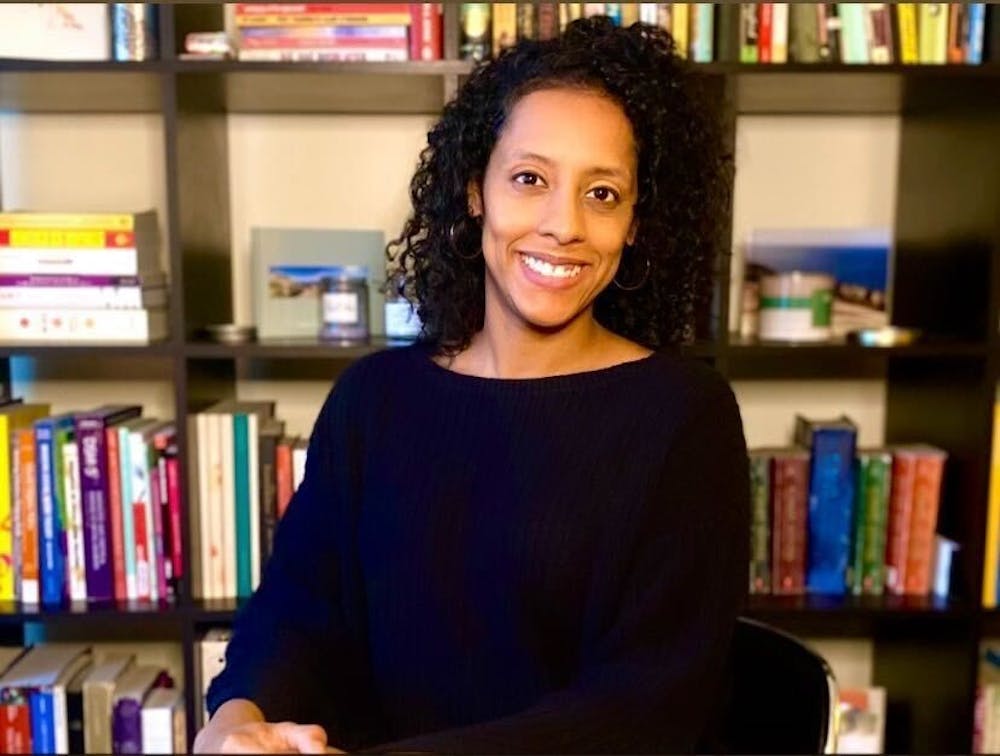“I think it provides an excellent invitation to not just social science researchers but all researchers to really reconsider the approaches that they take to their science,” Villodas said.
'Conceptualizing anti-racist research'
Held on Feb. 10, the second workshop will focus on conceptualizing anti-racist research.
UNC School of Social Work clinical associate professors Andrea Murray-Lichtman, the speaker at the event, and Tauchiana Williams, the moderator, will be joined by clinical assistant professor April Parker to discuss racial equity in research.
“The engaging conversation will encourage participants to evaluate the implications of their research, policy and practice goals in light of history and the current climate," Susan White, a communication specialist at the School of Social Work, said on the announcement page. "She will end by exploring a path forward and determining possibilities gained by centering race and racial equity in research, policy, and practice.”
'Measurement in research: Using an antiracism framework'
Villodas, Professor Michael Canute Lambert and Research Professor Kirsten Kainz will present during the third webinar on Feb. 17. The panel will be moderated by David Ansong, an associate professor in the School of Social Work.
Villodas said her work is concerned with how the places people live impact their health and mental well-being. She has a particular interest in children, youth and young adults of color living in marginalized neighborhoods.
“We really risk making assumptions about people and groups and communities when we're not using valid measurement from that specific population,” she said.
Her research used exploratory factor analysis, where a researcher tries to find out if items in the measure capture the phenomena they're trying to study, and confirmatory factor analysis, which tests if theories about certain constructs are consistent, Villodas said.
She said that having valid and reliable measurements for understudied populations is important for research that takes an antiracist approach.
“And it's a practice that repairs our approach to science to be more equitable and honest with how the distribution of resources and the circumstances that people of color, and Black people in particular as you think about Black History Month, have experienced over time,” Villodas said.
To get the day's news and headlines in your inbox each morning, sign up for our email newsletters.
Lambert said he focuses on international research. His work is based in the Caribbean and the U.S.
Lambert has realized through his work that a problem of international studies is that researchers use measures that have been designed for the U.S. Lambert said they are usually designed by white, middle-class Americans and norms are standardized primarily on white middle-class people.
“And so taking that elsewhere and just using it as is is problematic because it doesn't really capture what is going on with people in different societies," he said.
As a result of these findings, Lambert modified existing measures and created his own to include items that will reflect the mental behaviors people are presenting to clinicians when they come in for services and how it is reflected in their clinical records.
'Coping Amidst COVID as BIPOC'
For the fourth and final event, doctoral student Anjalee Sharma and professors Sharon Parker and Rachel Goode will be addressing how the COVID-19 pandemic has affected Black, Indigenous and other people of color.
Parker, anassociate professor in the department of sociology and social work at N.C. A&T, said her research focused on women's health and prevention of HIV among marginalized populations.
She said she was interested in learning how young adult women navigated intimate relationships during the height of the pandemic. Parker said when the pandemic first hit, she did not find a lot of information from colleges and universities to help young people navigate their relationships during a pandemic.
“So more health education will be needed around that,” she said.
Goode, assistant professor in the UNC School of Social Work and adjunct assistant professor for the Center of Excellence for Eating Disorders, investigated alongside two research assistants the impact of COVID-19 on the eating disorders of 20 Black women across the country during the first summer of the pandemic in 2020.
Goode said she wants people to know that eating disorders affect everyone.
“I think we have a stereotype in our minds that they just affect adolescent, affluent white women, and they don't,” Goode said. “You can't look at someone and tell they have an eating disorder, and black women I think have typically been excluded from our perception of who has an eating disorder.”
Goode added that more research is necessary to thoroughly develop programs that are culturally relevant to treat the population.
Those who are interested in attending the research series events can register by clicking the corresponding links: Feb. 10, Feb. 17 and Feb. 24.
university@dailytarheel.com



